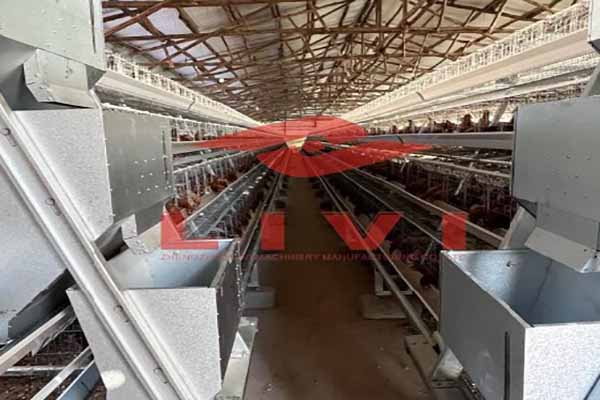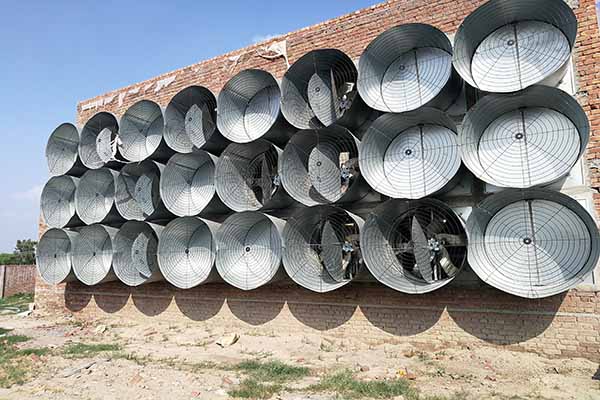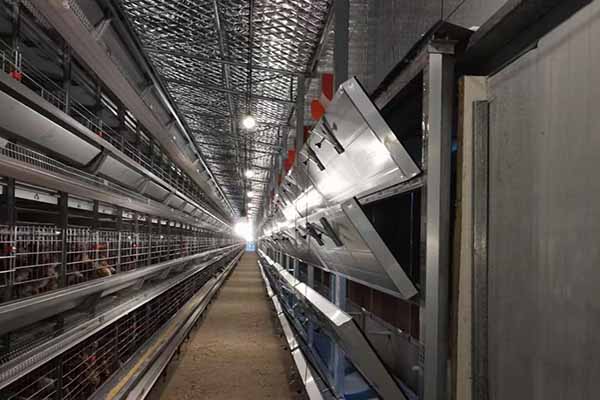Environmental Protection Requirements for Kenyan Chicken Farms
Time : 2025-06-24
In recent years, environmental protection has become a global concern, and the agricultural sector is not exempt from this trend. Kenya, being a key player in the African poultry industry, has stringent environmental protection requirements for its chicken farms. This article delves into the critical environmental protection measures that Kenyan chicken farms must adhere to, emphasizing the use of professional poultry equipment to ensure compliance and sustainability.

Introduction to Environmental Protection in Chicken Farms
The poultry industry is one of the fastest-growing sectors in Kenya, contributing significantly to the country’s economy. However, the industry also poses several environmental challenges, including water pollution, air pollution, and soil degradation. To address these issues, the Kenyan government has implemented strict environmental protection requirements for chicken farms.
Water Management
One of the most critical aspects of environmental protection in chicken farming is water management. Farms must ensure that water usage is efficient and that waste water is treated before discharge. Here are some key measures:
- Recycling Water: Implementing a system to recycle water for irrigation and other farm activities reduces the overall water consumption.
- Water Treatment Plants: Setting up water treatment plants on the farm to purify waste water and make it safe for discharge or reuse.
- Water Conservation Techniques: Adopting water-saving techniques such as drip irrigation and mulching to reduce water loss through evaporation.
Air Quality Management
Air pollution from chicken farms can lead to respiratory issues in humans and animals. To mitigate this, the following measures are crucial:
- Odor Control: Using biofilters and enzyme-based odor control systems to minimize the release of ammonia and other harmful gases.
- Air Ventilation: Ensuring proper ventilation in chicken houses to maintain optimal air quality.
- Manure Management: Efficiently managing manure to prevent the emission of methane, a potent greenhouse gas.
Soil Conservation
Soil degradation is a significant concern in chicken farming. The following strategies can help preserve soil health:
- Composting: Utilizing chicken manure for composting to enrich the soil and reduce the use of chemical fertilizers.
- Crop Rotation: Implementing crop rotation to maintain soil fertility and prevent the buildup of pests and diseases.
- Buffer Strips: Planting buffer strips around chicken houses to reduce runoff and filter out nutrients and sediments.
Role of Professional Poultry Equipment in Environmental Protection
Adhering to environmental protection requirements is not only about implementing policies but also about utilizing the right equipment. Professional poultry equ ipment plays a crucial role in ensuring that chicken farms operate efficiently and sustainably. Here are some key pieces of equipment:
ipment plays a crucial role in ensuring that chicken farms operate efficiently and sustainably. Here are some key pieces of equipment:
Manure Handling Systems
Efficient manure handling systems are essential for reducing methane emissions and minimizing the environmental impact of chicken waste. Here are some advanced systems:
- Slurry Pumps: Designed to handle liquid manure, slurry pumps are efficient in moving waste from chicken houses to treatment facilities.
- Composting Bins: These bins facilitate the composting process, turning chicken manure into a valuable soil amendment.
- Manure Driers: Driers help in reducing the moisture content of manure, making it easier to handle and compost.
Water Purification Systems
Water purification systems are vital for ensuring that the water used in chicken farming is of high quality and does not pollute local water bodies. Some advanced purification technologies include:
- Ultrafiltration Systems: These systems remove suspended particles and colloids from water, ensuring its clarity and purity.
- <strong Reverse Osmosis (RO) Systems: RO systems effectively remove dissolved salts and other contaminants from water, making it suitable for various farm applications.
- <strong UV Sterilization Systems: UV sterilization systems eliminate pathogens in water, providing safe drinking water for chickens and reducing the risk of waterborne diseases.
Air Quality Control Equipment
Controlling air quality in chicken houses is crucial for the health of the chickens and the environment. Here are some key equipment pieces:
- Air Filters: Air filters are designed to capture dust, dander, and other airborne particles, improving the indoor air quality.
- Carbon Filters: Carbon filters are effective in absorbing odors and volatile organic compounds (VOCs) from the air.
- Biofilters: Biofilters use biological processes to break down ammonia and other harmful gases, reducing their impact on the environment.
Conclusion
Environmental protection is a non-negotiable aspect of chicken farming in Kenya. By adhering to stringent environmental protection requirements and utilizing professional poultry equipment, farms can operate efficiently while minimizing their ecological footprint. As the poultry industry continues to grow, it is essential for farmers to embrace sustainable practices to ensure a greener and healthier future for all.












